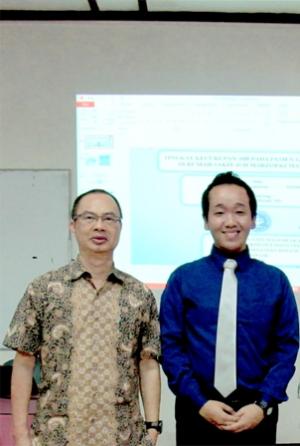IPB Examines Carefully the Liquid Sufficiency Level of Mental Disorder Patients

Water is the essential compound which existence is very much needed for the process of life. The human body consists of 55-75 percents of water. The lack of liquid (dehydration) can give the bad effect to the mood, the ability to concentrate, feeling tired and the lack of cognitive performance, especially the vigilance.
The thirst is the major mechanism for stimulating the sufficient drink. In normal condition, when various food and drinks are available, the intake of liquid itself tends to exceed the volume needed.
For the mental disorder patients having the insensitivity for thirst, the dehydration would happen by itself. Besides that, the feeding behaviour which is different (male and female) like irregular appetite also influences. Irregularity could be due to the presence of hallucination, suicidal ideation, hyperactive, hipertimia (circumstances which are encouraging), hipotimia (circumstances which are pathetic), and new atmosphere which is gripping and boring. The medicines that usually would be given to the patients give the effect in form of dry mouth.
Based on the observation result of the researcher from Department of Community Nutrition, Faculty of Human Ecology (Fema), Bogor Agricultural University (IPB), the female mental disorder patients were included in the category of exceess. While the male mental disorder patients were included in the category of sufficient.
Mochamad Enra Sujanawan and Hadi Riyadi as the researchers of IPB conducted the observation in Marzoeki Mahdi Hospital Bogor in 2014. The research published in Jurnal Gizi dan Pangan, July 2014, was conducted in the mental disorder patients of inpatients class III, with the ages of 17-45 years old, not accompanied by other diseases, calm condition and being able to eat by himself.
“Besides that, the patients could be invited to cooperate like willing to measure the body height and weight and be able to be observed the intake for three days. The number of patients observed are ten male and three female patients,” said Enra.(zul)



